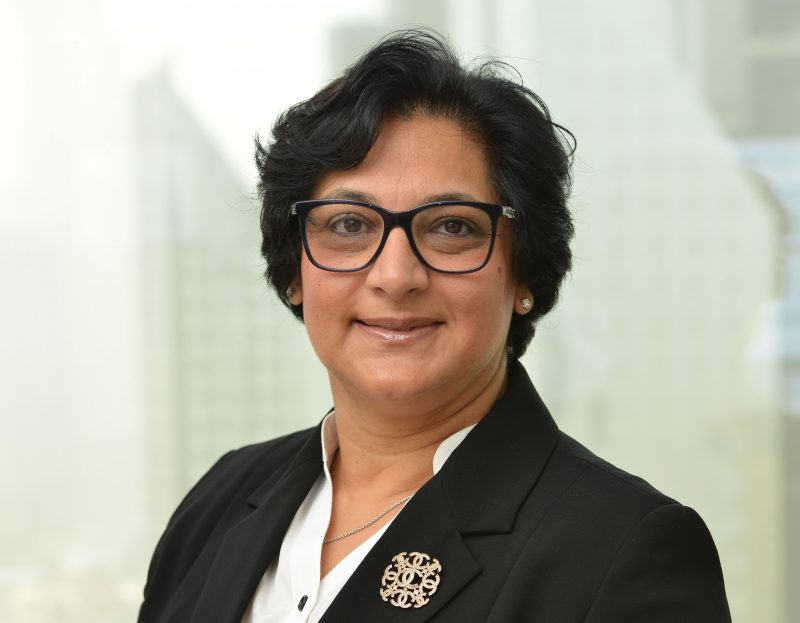Why population health management is key to a healthier UAE
Shainoor Khoja, chief impact officer at Right Health, explains how technology can help boost wellbeing across the emirates

Providing quality, state-of-the-art healthcare services and ensuring people’s well-being is central to any government’s agenda. Governments around the world are increasingly looking at ways to efficiently invest in healthcare infrastructure and introducing new models to address the gaps in healthcare and improve the overall welfare of their people.
In the Middle East, the UAE has spearheaded this movement through improving the accessibility and availability of quality care in partnership with the private sector.
Over the last decade, research in the UAE has shown the prevalence of chronic and non-communicable diseases across the country, indicating the need for better population health management. As per the Dubai Health Investment Guide 2018 published by the Dubai Health Authority (DHA), diabetes was declared a critical condition across the adult population in the UAE with a prevalence ratio that is two to four times higher than certain developed countries, while 34.5 per cent of the adult population was diagnosed as overweight. Earlier, in 2016, DHA reported that cardiovascular diseases and cancer caused 51 per cent of all deaths in UAE.
The severity of these health issues highlights the need to effectively manage the health and well-being of residents in the country. Both the government and private sector should regard population health management as a key solution if we are to ensure a healthier and more productive workforce.
Data key to finding solutions to health problems
With Dubai marching towards becoming a smart city and hub of innovation, the government is encouraging the healthcare sector to utilise the modern solutions currently available. Through leveraging data analytics and artificial intelligence tools, healthcare information from vendors can be aggregated to establish a shared medical record platform, which can be accessed in real-time, across the UAE.
To better manage the health of the population, healthcare professionals need access to detailed data from various sources including hospitals, primary care providers, specialists, pharmacies, and the patients themselves. A central repository of data needs to be created that includes each patient’s medical records with details of medical transactions, tests, vital signs, medications, allergies, imaging reports, and more.
Once the data is centralised, it will aid the government, insurers and healthcare professionals to track diseases, trends and lifestyle issues. For instance, if the data indicates an increased incidence of high blood pressure among patients over a certain period, this data can then be used by healthcare professionals to analyse its cause. Access to this kind of information will inform the physician’s decision of developing accurate recommendations and tailored treatment plans for individual patients.
The flow of health data will assist in preventative healthcare, improve patient safety, research plans in the healthcare system, and boost the overall quality of healthcare services.
Insurance support towards better population health management
A centralised data management system will also benefit other stakeholders in the healthcare ecosystem, such as the insurance providers. Having access to data aggregated on a platform will give them an accurate picture of the patient’s medical records. It will prevent them from making errors or duplicating services.
For example, if a patient has recently undergone a certain health check at a specific centre, he or she does not need do it again if a different doctor orders the same test that is not time-sensitive. The doctor would have access to the tests conducted and the results – eliminating the need for a repeat of the tests.
In addition to saving time and speeding up the treatment process, such a system will enable insurance companies to save money and even lead to reduced insurance policy costs for individuals.
Looking at these facts it is clear that effective population health management largely depends on having access to data and the right to analyse the data. Leveraging real time data and analytics would significantly improve clinical outcomes and disease management.
Rather than adopting a reactive approach in the healthcare system, the UAE government is now looking towards establishing preventative healthcare for the betterment of the population. As part of the UAE Vision 2021, the government set clear objectives for the healthcare sector to ensure a longer, happier, and healthier life for all its citizens. The nation is making quick strides to achieve this goal through introducing regulations such as mandatory health insurance for all, and through devising plans to utilise technology, robotics, and Artificial Intelligence tools for collating healthcare information.
Responding to such efforts, stakeholders in the healthcare system need to collaborate in introducing technology to address the healthcare challenges and make a real difference in the community. To its credit, the healthcare industry is already moving towards data analytics and automation. It is vital that to embrace this migration on a wider level.
